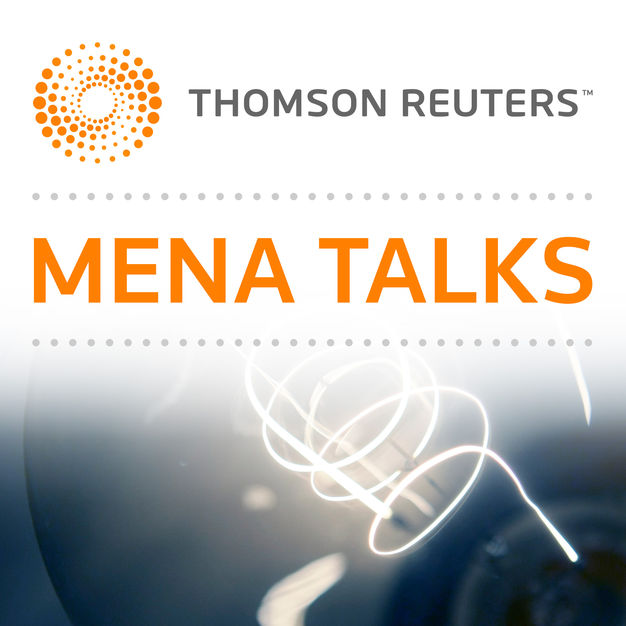
Beyond the Headlines
The National UAE
Dive deeper into the week's biggest stories from the Middle East and around the world with The National's foreign desk. Nuances are often missed in day-to-day headlines. We go Beyond the Headlines by bringing together the voices of experts and those living the news to provide a clearer picture of the region's shifting political and social landscape.
- 14 minutes 34 secondsPalestine and pressure on campus: Academics say they are disciplined for anti-war speech
When Dr Mohamed Abdou joined Columbia University, he was thrilled to be in the company of renowned scholars of the Middle East. What he did not expect was that he would learn of what Columbia called his termination through a congressional hearing broadcast on live TV, only a few months later.
Now, he is suing Columbia University and its former president – and his case is not isolated. Dr Abdou is among several professors and faculty at various universities across the US who say they have faced disciplinary action for their stance on Palestine. One legal aid group focusing on cases related to Palestine activism told The National it has received nearly 3,000 requests related to the suppression of Palestinian rights advocacy on campuses across the US since October 7 last year.
On this episode of Beyond the Headlines, we are peering into a lingering remnant of anti-war protests that shook college campuses in the US and around the world last spring.
20 December 2024, 1:55 am - 26 minutes 43 secondsWhat is next for Syria and the region after Assad?
Syria's Bashar Al Assad has fled the country after rebels took over Damascus.
Prisoners who had been kept in the dark for decades were finally freed from notorious and brutal jails. People were reunited with loved ones who had disappeared years ago. Syrian embassies around the world raised what were once opposition flags. And officials close to Assad made their first public criticisms of his rule.
Now, the future of the country is at stake. And because of long-held international interests in Syria’s political assets – Iran in the Assad regime, Turkey in Kurdish strongholds, the US in ISIS positions. Israel on the border – all eyes are on how Hayat Tahrir Al Sham is going to handle this delicate moment in its history.
In this week’s Beyond the Headlines, host Nada AlTaher looks at what’s next in Syria after Assad, and how this will impact the Middle East as the balances of power shift, featuring views from Hussein Ibish, senior resident scholar at the Arab Gulf States Institute in Washington, and Kobi Michael, a senior researcher at the Institute for National Security Studies in Israel.
13 December 2024, 10:29 am - 21 minutes 8 secondsHow will the power balance in Syria shift?
Renewed fighting in Syria has ended a period of relative calm in the country after rebel groups launched a surprise offensive last week and took over the country's second biggest city, Aleppo.
Syrian government forces also said they had withdrawn on Thursday from Hama, a strategic city with supply lines to loyalist coastal strongholds.
Led by the militant group Hayat Tahrir Al Sham, the rebels took only about two days to seize Aleppo. Syrian government and Russian jets carried out counterstrikes soon after, bombing the rebel-held city of Idlib in the north-west of the country.
Syria’s civil war started in 2011 after protests against President Bashar Al Assad’s rule were met with a brutal crackdown, turning into a bloody war since then. Vast areas of the country were eventually reclaimed by the government, including until last week Aleppo. Much of the north-west fell under the hold of various rebel groups, including Hayat Tahrir.
In 2020 a truce was brokered by Turkey and Russia bringing the fighting to a standstill but this fragile status quo has now been broken. The timing, the scale and the speed of the offensive have sent shockwaves across the region. With so many international actors also involved in the conflict - Russia, Iran and Turkey to name a few - many questions loom over what this rebellion means and what will happen next.
Host Nada AlTaher speaks to The National’s Turkey-based correspondent Lizzie Porter, and to Orwa Ajjoub, Syria researcher and PhD candidate at Malmo University. They discuss how the latest events could change dynamics on the ground.
6 December 2024, 1:55 am - 23 minutes 13 secondsWill the ceasefire between Israel and Hezbollah stick?
Lebanon celebrated a rare moment of joy as displaced families began to return to their homes after a ceasefire between Israel and Hezbollah came into effect on Wednesday. The people breathed a sigh of relief – for now.
Almost 4.000 people have been killed in Israel’s war in Lebanon and about 1.2 million displaced. Entire villages have been wiped off the map.
After Hamas launched its deadly October 7 attack last year, prompting a devastating military response by Israel on Gaza, Lebanon’s Hezbollah engaged in the fighting almost immediately. It began launching rockets towards Israel, igniting an exchange of fire across their shared border.
The world warned against allowing the war in Gaza to spill over into the rest of the region, but that's what happened. Israel launched a ground invasion into Lebanon in late September and carried out a devastating bombing campaign. The war seemed to have no clear end in sight – until now.
A US-brokered deal came through at the last minute on Tuesday evening, amid heavy Israeli bombardment across Beirut. It maps out the terms of a 60-day truce that is designed to become a permanent ceasefire. The question is, will it last?
In this episode of Beyond The Headlines, host Nada AlTaher examines how the terms of the agreement will translate on the ground and whether the deal could lead to a ceasefire in Gaza. We hear from The National’s foreign editor Mohamad Ali Harisi and from David Wood, senior analyst for Lebanon at the Crisis Group.
29 November 2024, 1:55 am - 24 minutes 54 secondsThe lingering impact of mass displacement in LebanonMore than 3,500 people have been killed in Lebanon since last October, with Israel intensifying its attacks since September, launching a ground invasion into the country and an air strike campaign that has caused much destruction. Its bombings have become more unpredictable in scale and location, forcing masses to flee their homes. More than 1.2 million people have been displaced since Israel escalated its war. Several hundred thousand, many of them already refugees, have fled across the border to Syria despite the risks they face there. The spillover war from Gaza is wreaking havoc on a population that had already been grappling with years of economic and political turmoil. The Lebanese state’s resources are far too strained to cope with the scale of displacement and there are not nearly enough organised shelters. For vulnerable minorities in the country, including Syrian refugees and migrant workers, the conditions are even more challenging. Israel says it is attacking Hezbollah, but its campaign has provoked widespread international condemnation because of the high civilian toll. This week, US envoy Amos Hochstein is in the Middle East in an attempt to broker a ceasefire deal between Israel and Hezbollah. That cannot come soon enough for the hundreds of thousands of displaced people. But what would those who have lost their homes and their livelihoods return to? This week on Beyond the Headlines, host Nada AlTaher looks at the deepening displacement crisis in Lebanon and its impact on the future of the country and its people. She speaks to the head of the International Organisation for Migration in Lebanon, Mathieu Luciano, and Prof Mona Fawaz from the American University of Beirut.22 November 2024, 1:55 am
- 20 minutes 22 secondsWhat will Donald Trump’s presidency change for Palestinians?
Donald Trump will return to the White House in January as the 47th American president, and the Middle East is waiting to see whether and how he can end the wars in the region.
Many Palestinians in Gaza say they are not optimistic about the new US administration and worry the situation might take a turn for the worse after Mr Trump is inaugurated. Their concerns are rooted in decisions he made during his first term as president when he moved the US embassy from Tel Aviv to Jerusalem and cut more than $200 million in funding to the UN refugee agency UNRWA.
He also revealed his Peace to Prosperity plan to resolve the Israel-Palestine conflict in 2020. But it was strongly rejected by Palestinians, not only because it was drawn up without their input, but also because it revoked important rights that Palestinians have been asking for and allowed for illegal Israeli settlements in the occupied West Bank to be incorporated into Israel.
But the political landscape in the Middle East today is drastically different from four years ago and Mr Trump has a lot of new factors to consider. At the same time, he is viewed as a transactional leader and a dealmaker who may be more capable of ending the war.
This week on Beyond the Headlines, host Nada AlTaher speaks to Dalal Iriqat, associate professor of diplomacy at the Arab American University Palestine, and to Ghaith Al-Omari, senior fellow at the Washington Institute, about what a Trump presidency could mean for Palestinians in the short and long term. They discuss how his policies might change in his second term and whether there can be any prospect for peace and security in Palestine, Israel and the region.
15 November 2024, 6:56 am - 20 minutes 40 secondsWhat do Arab states think of Israel striking Iran?
Israel continues to bombard Gaza and Lebanon. It is launching strikes in Syria. But between Tel Aviv and Tehran, there’s an eerie silence. The latest round of attacks between the two came from Israel late last month, hitting military sites linked to Iran’s ballistic missile programme. Four soldiers and a civilian were killed, Iran said. Analysts believe Tehran's ballistic missile capabilities, drone production and air defences were seriously damaged.
This came in response to Iran launching its attack on Israel on October 1. With its response, the fear that Israel would hit back at Iran’s nuclear or oil centres has been put to rest, at least for now.
Israel’s strikes nevertheless prompted criticism from Arab states, including the GCC. The UAE strongly condemned them and expressed deep concern over the repercussions for security and stability in the region. Saudi Arabia called them a “violation of sovereignty” and international law, urging all parties to exercise maximum restraint.
Iran’s Foreign Minister, Abbas Araghchi, has recently been on tour across the Middle East. He said that he received guarantees from regional neighbours that neither their soil nor air spaces would be used to allow any attacks on Iran.
But Tehran has vowed to respond again. A continuous cycle of strikes poses a serious risk to the region and the world at large, potentially dragging the US and Arab states into a conflict that none of them wants.
On this episode of Beyond the Headlines, host Nada AlTaher speaks to The National’s military affairs reporter Robert Tollast about the effect of Israel’s strikes on Iran. She also talks with Dr Hasan Alhasan from the International Institute for Strategic Studies to investigate Iran’s relationship with its Arab neighbours amid regional escalations.
8 November 2024, 1:55 am - 17 minutes 43 secondsIsrael’s ban on UNRWA: How drastic will the effects be?
The Knesset has voted to ban the UN agency for Palestinian refugees, UNRWA, prompting much concern, even from Israel’s closest allies. Two bills were passed on Tuesday with overwhelming majorities: the first to halt the relief agency’s activities in Israel and occupied East Jerusalem, and the second to ban the Israeli state from interacting with the organisation.
The move would make it almost impossible for UNRWA to operate in Gaza and the occupied West Bank. It would hinder the agency’s financial operations and break aid supply chains into the enclave, where the north has already been starved, bombed and besieged for about a month. More than 43,100 have been killed in Gaza since the war began.
This isn’t the first time that UNRWA, and the UN more broadly, have come under attack from Israel, politically or physically. The war in Gaza has been the deadliest for UN workers, killing more than 220 staff members from the agency. UNRWA funding was cut by western states after Israel accused some of its members of being involved in the October 7 attacks on southern Israel, which killed about 1,200 people and led to the start of the war. Although most have since reinstated their funding, the US – the largest donor – has yet to overturn its suspension.
The ban deals a blow to the 75-year-old organisation, which serves six million Palestinian refugees across the region. World leaders have warned that the consequences could be serious. Legal experts say the Knesset’s decision may be breaching international law.
In this episode of Beyond the Headlines, host Nada AlTaher looks at the effect of the UNRWA ban on Palestinians in Gaza, and examines the legal consequences it could have on Israel and its standing at the UN. We hear from Chris Gunness, former director of communications and advocacy at UNRWA, and international human rights lawyer Saul Takahashi.
1 November 2024, 1:55 am - 21 minutes 55 secondsWhy, after Yahya Sinwar’s death, is Israel bombarding northern Gaza?
For weeks, the Israeli military has isolated the north of Gaza, conducting air strikes and ground attacks, including on residential areas and hospitals.
In back-to-back attacks on Beit Lahia and the nearby Jabalia refugee camp last Friday and Saturday, more than 100 people were killed in a single day. Limited aid is entering the area and more eviction orders have been issued to families in the north. But where will they go? And if they stay, what will be their fate? UN officials and other rights groups have warned that Israel is forcing Gaza residents to choose between leaving or starving.
The latest onslaught follows the killing last week of Yahya Sinwar, the Hamas leader and one of the men identified as most-wanted by Israel. Israeli Prime Minister Benjamin Netanyahu said it marked the beginning of the end of the war. But Palestinians in Gaza say those words carry little weight as they endure some of the most intense days of violence yet.
In this episode of Beyond the Headlines, host Nada AlTaher speaks to Tahani Mustafa, senior Palestine analyst at Crisis Group, and Avi Melamed, a former Israeli intelligence official and founder of Inside the Middle East Institute. She asks them about Israel’s strategy in the north of the strip and what its end-goal is, now that it has eliminated Hamas’ top leadership. We also hear from Ziad Mousa, a UN worker in Gaza city, who describes the dire situation there.
25 October 2024, 1:55 am - 29 minutes 58 secondsCan the US draw a firm red line for Israel’s military conduct?
Over the past year of war in Gaza, several diplomatic and humanitarian organisations, including the UN, have repeatedly accused Israel of breaching rules of military conduct. These breaches have provoked regular condemnation by governments and high-ranking officials worldwide. But amid all the words, what has been missing is concrete action against Israel.
If any authority has the power to influence Israel's actions, it is the US – its strongest ally and main source of military aid.
The death toll in Gaza has passed 42,400, with thousands more bodies thought to be buried under rubble and tens of thousands dying from indirect causes. In Lebanon, where densely populated neighbourhoods are being hit by air strikes, at least 2,300 have been killed and 1.2 million displaced.
Earlier this year, the International Court of Justice determined that it was plausible that Israel may be committing genocide. Investigators and human rights groups, including Amnesty International, have warned the US that it may be complicit in war crimes because of Israel’s unlawful use of American weapons.
In a rare development this week, a leaked document revealed US officials warning the Israeli government that future weapons shipments could be affected if the humanitarian crisis in Gaza is not addressed within 30 days. But with little having changed in the past year, and as Israel appears to defy any limits imposed on it, the question remains: will the US truly enforce any red lines?
On this episode of Beyond the Headlines, host Nada AlTaher speaks to Hala Rharrit, a former US diplomat who resigned in protest against Washington’s handling of the war. She also speaks to Mark Schwartz, a defence researcher at the RAND Corporation, to examine the White House's support for Israel. And we hear from Alex Vatanka, the founding director of the Iran programme at the Middle East Institute, on the prospects of an Israeli retaliation against Tehran.
18 October 2024, 7:30 am - 19 minutes 2 secondsWill Israel strike Iran – and if so, how and when?
Since the killing of Hezbollah leader Hassan Nasrallah at the end of September, Israel has expanded its air strike campaign in Lebanon and launched a ground invasion. It has also struck Yemen and Syria in recent weeks.
Meanwhile, Hezbollah has launched a series of rocket attacks towards Israel, which for the most part have been intercepted. At the same time, the war in Gaza is continuing as Israel devastates the north of the enclave.
The other major escalation was Iran directly striking Israel with ballistic missiles for the second time since April. Israel has now vowed to strike back. But when and how?
Until now, Iran has relied on its proxy groups in the Middle East. At first, it was unthinkable that any major world power would want to get involved in a war of that scale. Neither the US nor Iran seemed to want to venture to that point of no return. However, tensions have escalated.
In this episode of Beyond the Headlines, host Nada AlTaher looks at the potential consequences of these recent escalations. We hear from Paul Salem, vice president for International Engagement at the Middle East Institute, and Dr Sanam Vakil, Middle East and North Africa programme director at Chatham House. They analyse how Israel could respond and the geopolitical risks the warring sides may or may not consider.
Beyond The Headlines has been nominated in this year's Signal Awards in the News & Politics category. Click here to vote for the podcast.
10 October 2024, 11:03 am - More Episodes? Get the App
Your feedback is valuable to us. Should you encounter any bugs, glitches, lack of functionality or other problems, please email us on [email protected] or join Moon.FM Telegram Group where you can talk directly to the dev team who are happy to answer any queries.
 The Agenda with Tom Urquhart
The Agenda with Tom Urquhart
 Dirhams & Dollars
Dirhams & Dollars
 Executive Focus | UAE (HD)
Executive Focus | UAE (HD)
 MENA Talks
MENA Talks